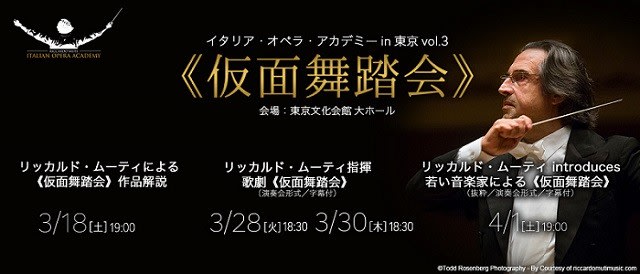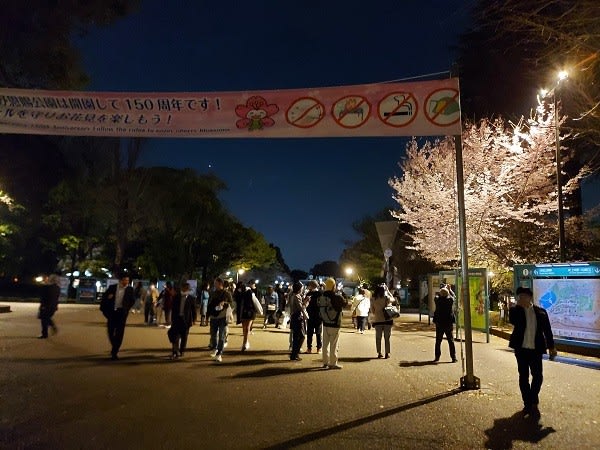
2021年の『マクベス』に続き、、、
ムーティさまブラボ~~~~~~









あらためて、「ムーティのヴェルディ」の物凄さよ・・・・・。
ウィーンフィルとのメンデルスゾーンやシューベルトも凄くよかったけれど、やっぱりムーティのヴェルディは格別。
ムーティの音作り、冒頭からマクベスのときを思い出しました。
丁寧で、その時々の情景や登場人物たちの感情が音からはっきりと立ち上ってくる。
楽譜の中に意味のない音なんて一つもないのだと感じさせられる。
一幕でリッカルドの殺害が予言されたときのティンパニの暗い音色と、その後の軽やかさ(といっても不吉な予言なのでただ軽いわけではない)の対比とタイミングとか、絶品だった。
二幕の墓場で刺客に襲われそうになる場面の「Va!」を絶叫する三重唱の緊張感だけはなぜかイマヒトツだったけれど、あれは指揮者の意図としか思えなかったけれど何故だったのだろう。ムーティさま、煩いのお嫌い?
三幕の仮面舞踏会の招待状が届いたところの重唱場面で(この作品は重唱が楽しい。字幕さんGJ)、合言葉の「Morte(死)!」を言うところの密やかな緊張感と暗さの見事さと言ったら・・・。ホール中が”あの場の空気”に支配されていた。
全ての歌を朗々と歌い上げるのではなく、といってただ台詞のように言わせるのでもなく、ちゃんと心が入ってリアルに歌わせているのがとてもいい。物語上で囁くところは、ちゃんと囁くように感じさせる。それは歌手もオケも同じで、『マクベス』のときもそうだったので、ムーティの指示なのだと思う。
ラストの「恐ろしい夜!」のところも完璧でした。あの血の凍るような音!
ここってそれまでの感動的なしっとり展開からいきなり「notte d'orror!」のff合唱で終わるのが唐突に感じられてしまう部分だけれど(実際youtubeで予習したときはそう感じた)、ムーティの音作りだと火サスみたいな野暮ったさが皆無で、スッキリとした音なのに(だからこそ?)説得力抜群。ムーティがこの作品を「客観的な作品」と言っていた理由が良い意味でわかった気がする。
なんというか、物凄く上質で美しい文章で書かれた新聞記事をリアルタイムで読んでいるような。あるいは上質な文芸作品の場面と空気を肌でリアルに感じているような。そう、ムーティの音楽には常に品があるんですよね。リアルさと芸術的な品格のバランスが絶妙。ほんとムーティ、ブラボー。。。
あえて欠点をあげるなら音楽作りが厳格に過ぎているところかもしれないけれど、それは些細なこと(えらそうにスミマセン…。でも覚書なので書いておく)。
ムーティによれば、ヴェルディは、たとえば「リゴレット」や「椿姫」においては内面から登場人物に力を入れて描写し、ときには自分自身を人物に投影してきたのに対し、「仮面舞踏会」においては、外から見て人物を作っていった。一つひとつのアリアにしても、絵のように、アーケードのように描いていきながら自らを反映していったのだという。
他のオペラには見られないような軽やかで新鮮なキャラクターを登場させたり、クラリネットやヴィオラ、チェロによる暗く濃い音の色彩で作られたりする場面が多いのも特徴である。
つまり、主観的ではなく客観的な筆致によって描かれ、そのクライマックスにおいて国家の指導者が暗殺される、壮麗で悲劇的なオペラが「仮面舞踏会」なのである。
(JBpress「オペラはエンターテインメントではない」指揮者ムーティが語るヴェルディ)
今回もやはり一番の主役は、ムーティの意図を正確に表現しきった春祭オケ!
日本の、それも常設ではないオケでこれだけの演奏を聴けるのはなんて凄いことだろう。日本人のオケなのに、色っぽさもちゃんと出てるんですよね。優雅な音はとことん優雅なのも素晴らしい。二幕の「愛の二重奏」の演奏も、美しかった。
個々の奏者では、ティンパニ(清水 太さん@東響)とイングリッシュホルン(﨑本 絵里菜さん)とチェロ(中木 健二人さん)がとてもよかったなあ。特に三幕のアメーリアのアリアのチェロ、まるで人の声のようにしか聴こえなくて、なのにちゃんと品もあり、聴き惚れました。他にも、運命の判決を意味するトランペットも緊張感のあるいい音だったし、軽やかで清澄なハープも美しかった。
なにより今年も奏者達の「ムーティからしっかり学び取ろう」という情熱が強く伝わってきて、ムーティもオケも幸福そうで、それを聴いているこちらも幸福でした。
リッカルド役のアゼル・ザダ(テノール)。
総督(王)ぽさが足りないのはともかくとして、二幕までは驚くほど声が出ていなくて、どうしちゃったのだろう… ?と。SNSでは「ムーティが朗々と馬鹿みたいに歌い上げるテノールが嫌いだから萎縮してああなってしまったのでは」とか色々噂されていたけれど、真相はわからず。
?と。SNSでは「ムーティが朗々と馬鹿みたいに歌い上げるテノールが嫌いだから萎縮してああなってしまったのでは」とか色々噂されていたけれど、真相はわからず。
でも三幕の書斎の場面からはちゃんと声が出てきて(吹っ切れた?)、死んでいく場面も、囁くような、でもしっかり意思を感じさせる歌い方で、合唱の浄化されるような響きとともに感動しました。ここ、レミゼ(ミュージカル)のラストでヴァルジャンが死んでいく場面と似ていますね。
アメーリア役のジョイス・エル=コーリー(ソプラノ)。一幕では張り上げ系の声が気になったけれど、二幕の墓場の「あの草を摘み取って」と三幕の「最後の願いを」のアリア、アメーリアの心が切々と伝わってきました。このエル=コーリーとマトーチュキナとミッツィは、昨年のシカゴ響の公演でも同役を歌ったとのこと。
レナート役のセルバン・ヴァシレ(バリトン)。深みのある声質がこの役にピッタリで、安心して聴くことができました(リッカルドが弱かっただけに)。
ウルリカ役のユリア・マトーチュキナ(メゾ・ソプラノ)。不気味さは少し薄めだったけれど太めの声質がこの役にピッタリで、こちらも安心して聴くことができました。
オスカル役のダミアナ・ミッツィ(ソプラノ)。もう少しだけ軽やかな歌い方でも良かった気もしたけれど、透明感のある清澄な声がとってもよかった。個人的にこの役はこういう声で歌ってほしいので、嬉しかったです。妊娠されているようで、カテコで拍手を浴びながら嬉しそうにお腹ポンポンしてた
あと脇でやたら良い声の人がいる…!と思ったのが、シルヴァーノ役の大西宇宙(バリトン)さん。一幕はリッカルドが弱かったので、どちらが主役かわからなくなるほど
今年も圧倒的な体験(まさに”体験”!)をさせてくれたムーティのイタリア・オペラ・アカデミーin Tokyo。
ムーティ、いま81歳だそうですが、そのスラリとした指揮姿と漲る覇気はとてもその年齢には見えない(あの腕の雄弁さと美しさ!)。
来年の春もまた来てくれるかな。お待ちしております!
指揮:リッカルド・ムーティ
リッカルド(テノール):アゼル・ザダ
アメーリア(ソプラノ):ジョイス・エル=コーリー
レナート(バリトン):セルバン・ヴァシレ
ウルリカ(メゾ・ソプラノ):ユリア・マトーチュキナ
オスカル(ソプラノ):ダミアナ・ミッツィ
サムエル(バス・バリトン):山下浩司
トム(バス・バリトン):畠山 茂
シルヴァーノ(バリトン):大西宇宙
判事(テノール):志田雄二
アメーリアの召使い(テノール):塚田堂琉
管弦楽:東京春祭オーケストラ
合唱:東京オペラシンガーズ
東京春祭オーケストラ(管弦楽)
今年も主要オケの首席やコンマスだらけのなかなか錚々たる面々ですね。












【#東京春祭2023 🇮🇹アカデミーレポート】
— 東京・春・音楽祭 / Spring Festival in Tokyo (@tokyo_harusai) March 24, 2023
🌸日々の臨場感を現場からお届け📣🎶
イタリア・オペラを知り尽くしたムーティ氏が、これまでに受けた教えを才能ある世界中の若手音楽家に厳しさとユーモアを持って指導します。
現場からの臨場感あふれるレポートをどうぞ👇
#東京春祭2023 #アカデミーレポ
— 東京・春・音楽祭 / Spring Festival in Tokyo (@tokyo_harusai) March 25, 2023
🇮🇹アカデミーの6日間はあっという間。
今日がRHの最終日で、明日からゲネプロ、そして本番です❣️
この日はまず、
オケと合唱のみなさんに向けて、
マエストロの感謝のひとことで始まりました✨
「おはようございます。
みなさん、ご協力ありがとうございました」
マエストロが振るとオケの音が見事に変わる。厳しい指摘に心折れそうになるけど、ムーティの指揮で音を出した瞬間は本当に幸せ。いよいよ明日から本番です。 https://t.co/e8CmtbroKg
— Soushi Nakadate 中舘壮志 (@soushi_clar) March 27, 2023
東京春祭でのオペラ「仮面舞踏会」はGPが終わり、残るは3度の本番のみ。初めて参加したこのプロジェクトは、色々な意味で驚愕の体験でした。ここに多くは書きませんが、生涯忘れることはないでしょう。
— 郷古廉 Sunao GOKO (@sunaogoko) March 27, 2023
明日からの本番が楽しみです。どうぞお楽しみに。
\指揮受講生の皆さんよりメッセージ❣️/
— 東京・春・音楽祭 / Spring Festival in Tokyo (@tokyo_harusai) March 30, 2023
4/1 #イタリア・オペラ・アカデミー in 東京 vol.3
リッカルド・ムーティ introduces 若い音楽家による《 #仮面舞踏会》(演奏会形式/字幕付)で指揮する、指揮受講生の皆さんにアカデミーを受講しての感想や、4/1の公演に向けての意気込みを聞きました✨
👇
(2/2)
— KA (@KA_aooooooooohn) March 19, 2023
・心に残った言葉
・ジョーク集
・イタリアオペラの闘い#東京春祭2023#リッカルド・ムーティ#イタリア・オペラ・アカデミー pic.twitter.com/OA2XItdygS
今週のオペラあらすじ漫画は、ヴェルディ《仮面舞踏会》!
— KA (@KA_aooooooooohn) March 14, 2023
いよいよ今週末から #春祭 ムーティのイタリア・オペラ・アカデミーが始まりますね!!😍待ちきれません! pic.twitter.com/9dC2YeCpBO
春祭《仮面舞踏会》3/19(日)レポ!(1/2)
— KA (@KA_aooooooooohn) March 20, 2023
・受講生に対して
・歌詞は?
・三拍子について
・音色について#東京春祭2023#リッカルド・ムーティー#イタリア・オペラ・アカデミー pic.twitter.com/TyfLRgIosm
春祭《仮面舞踏会》3/19(日)レポ!(2/2)
— KA (@KA_aooooooooohn) March 20, 2023
・ムーティ様の差し色が素敵
・プロってすごい
・完全な私見#東京春祭2023#リッカルド・ムーティー#イタリア・オペラ・アカデミー pic.twitter.com/EyDtQ1NHh4
春祭《仮面舞踏会》3/20(月)レポ!(1/2)
— KA (@KA_aooooooooohn) March 21, 2023
・歌とオーケストラの関係
・重唱の時
・考えすぎないで
・講習生に対して#東京春祭2023#リッカルド・ムーティー#イタリア・オペラ・アカデミー pic.twitter.com/C8Lt98LUoT
春祭《仮面舞踏会》3/20(月)レポ!(2/2)
— KA (@KA_aooooooooohn) March 21, 2023
・演技派ムーティー様
・一音目がすごい
・個人的感想#東京春祭2023#リッカルド・ムーティー#イタリア・オペラ・アカデミー pic.twitter.com/C4Tr1x5mZb
春祭《仮面舞踏会》3/21(火)レポ!(1/2)
— KA (@KA_aooooooooohn) March 22, 2023
・間違いを恐れるんじゃねえ!
・音楽は同じなのにね
・突然のプッチーニ
・全てに理由がある。#東京春祭2023#リッカルド・ムーティー#イタリア・オペラ・アカデミー pic.twitter.com/ChHrIePZnm
春祭《仮面舞踏会》3/21(火)レポ!(2/2)
— KA (@KA_aooooooooohn) March 23, 2023
・「運命」を告げる楽器
・指揮者の教訓
・ムーティージョーク
・個人的感想#東京春祭2023#リッカルド・ムーティー#イタリア・オペラ・アカデミー pic.twitter.com/kskHLTHrrQ
春祭《仮面舞踏会》3/24(金)レポ!
— KA (@KA_aooooooooohn) March 24, 2023
・めちゃめちゃとは
・細部に神は宿る
・表情管理の道は険しい
・心に残った言葉たち#東京春祭2023#リッカルド・ムーティー#イタリア・オペラ・アカデミー pic.twitter.com/yQsYdpFmLP
春祭《仮面舞踏会》レポ
— KA (@KA_aooooooooohn) March 27, 2023
・歌詞に込められた思い
・チェロの旋律の意味
・個人的感想〜急に来るやん〜#東京春祭2023#リッカルド・ムーティー#イタリア・オペラ・アカデミー pic.twitter.com/8t2eoIxD1M
春祭《仮面舞踏会》3/25(土)レポ!
— KA (@KA_aooooooooohn) March 25, 2023
・オケが語るんだ、心を。
・講習生に対して
・心に残った言葉たち
・ムーティー様ジョーク#東京春祭2023#リッカルド・ムーティー#イタリア・オペラ・アカデミー pic.twitter.com/jv51AonrML
春祭《仮面舞踏会》3/26(日)レポ!
— KA (@KA_aooooooooohn) March 26, 2023
本日はレシーバーが無かったので、視覚的レポです!
・お仕置き
・オーケストラとのコミュニケーション
・ムーティー様の交通整理#東京春祭2023#リッカルド・ムーティー#イタリア・オペラ・アカデミー pic.twitter.com/bg8OPX7esZ
※巨匠リッカルド・ムーティが語る「ヴェルディへの敬愛」(家庭画報。2023年)
※リッカルド・ムーティ氏に特別インタビュー!巨匠が語る「音楽の力」とは?(家庭画報。2019年)
※「オペラはエンターテインメントではない」指揮者ムーティが語るヴェルディ(JBpress)
※Muti’s legacy: respect composers, reject revisionists (AP, June 25, 2022)
He used the unpublished critical edition from the complete works of Verdi, a joint project of the University of Chicago Press and Casa Ricordi started in the 1970s and still decades from completion. General editor Francesco Izzo traveled from Britain to be in the audience,
Muti insists reading the score is not enough. One must understand the motivation and purpose of each note and jettison additions to scores resulting from traditional habits.
(中略)
Muti did not alter the libretto in which a white Judge sings a racist insult toward Ulrica, a Black fortune teller accused of witchcraft: “dell’immondo sangue de’ negri (she has Black blood).” Muti says Verdi meant the line to highlight the Judge’s intolerance.
“In many theaters in this country and abroad, for the story of politically correct they change the phrase,” he told the orchestra. “We should not change so that the next generations must know the abomination that has been done for centuries. If you don’t change, you don’t solve the problem.”
(中略)
“We cannot change the history, because if we want to change the history, we should change everything, starting from the Greeks, from the Phoenicians, from the Romans,” he said. “We have to keep the horrible things of the past, to tell the young people that it was wrong.”
※Riccardo Muti interview: life, death, and the lack of seriousness (Gramilano, August 2021)
I regret the lack of seriousness today, the spirit with which Frederick II had the motto carved on the Capua town gate: Intrent securi qui quaerunt vivere puri (Let those who intend to live honestly enter safely) – this is the immigration and integration policy that is needed.
I don't even recognise my own profession. Conducting has often become a profession of convenience and young people often get into conducting without long and serious study. They tackle monumental works at the beginning of their career, relying on the effectiveness of gestures.
Toscanini said that the arms are the extension of the mind. Today, many conductors use the podium for excessive gesticulation, for show, trying to make an impression with an audience more interested in what they see than what they hear.
(中略)
I've just finished conducting Aida in concert at the Arena, and my regret is that I couldn't do Aida with Strehler, as we had planned. It would have been without elephants. Giorgio believed in an Aida where the ‘triumph' was only in the music, not in that pharaonic spectacle that has characterised productions of Aida the world over, to the point of becoming the very symbol of Aida and damaging the true essence of the opera, which is built on one of Verdi's most refined and delicate scores.
(中略)
I'm not afraid of death. As a boy we used to go to the cemetery in the evenings to watch the wills-o'-the-wisp. I met the last professional mourner, Giustina, who told me about the rewards of the dead, lying on the bed in the only room in the house, the door open to the street, with a photo of the soldier brother on the wall as well as the heroic uncle… It was a simple and amazing world, which I miss very much. That's why I belong to another era. Today the world goes so fast, it overwhelms everything, even these simple things, which have a deep humanity.
I don't fear the end in itself, though I would be sorry to leave my loved ones: my wife, my children Francesco, Chiara and Domenico, my grandchildren. And the animals: my dog Cooper, a Maltese, and in the countryside, we have doves, rabbits, chickens, roosters, and two Sardinian donkeys, Gaetano and Lampo, who are very intelligent. They get very attached; they look at you quizzically with their pink eyes…. and we use the words ‘dogs' and ‘donkeys' as if they were insults.
I joke that I will leave the instructions for the pieces of music to be heard in the church for my funeral, which will be all recordings conducted by me! Not because I think they are the best, but I want people to remember how I conducted Mozart, Schubert, Brahms. If it's not me conducting, I'll know immediately, and there's a strong chance the lid of the coffin will open…!
There's one thing I'm very serious about, though: I don't want applause at my funeral. I grew up in a world where there was a terrifying silence at funerals. Everyone was locked in their real or false grief. For the more affluent there was a band playing Rossini's Stabat Mater or the Molfettesi funeral marches, famous in Puglia. I remember hearing applause for the first time at the funerals of Totò and Anna Magnani, but it was in recognition of their ability to interpret the soul of Naples, Rome and Italy itself. When it's my turn, I'd like there to be absolute silence. If someone applauds, I swear I'll come back to haunt them at night, during the most intimate moments.
I don't know if I'll find myself in a better world, certainly not in the Elysian Fields, though I hope there is a lot of light. As long as there is not a metempsychosis as I have no desire to be reborn, much less as a spider or a mouse, but not even as a lion. One life is more than enough.
I had a Catholic education… though I don't believe in the blonde Jesus of the prayer cards. Inside us there is a cosmic energy that survives us because it is divine. I remember the death of my mother Gilda where I had the distinct sensation that her body became as heavy as marble, while a vital flow of energy was released. I feel that the universe is criss-crossed by sound rays that reach us, and that is the reason we have music. The sound rays that went through Mozart are infinite.
※Riccardo Muti interview, part two: Pavarotti, communication, politics and music’s meaning (Gramilano, August 2021)














